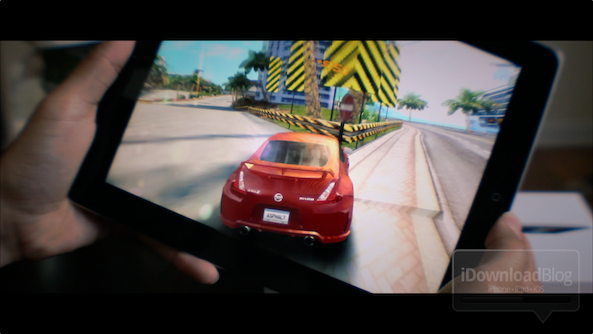The interest surrounding the iPad overheating meme isn’t vaning. Quite the contrary, folks are eager to get to the bottom of this thing. As we hold our breath for today’s definite findings of “a battery of tests” conducted by Consumer Reports, a display expert sheds more light on how an improved LED backlighting system on the iPad’s Retina display contributes to Heatgate and, specifically, the tablet’s run time.
You’ve already seen heat maps which prove that the new A5X chip with its jumbo-sized quad-core GPU is the biggest heater in the new iPad. That said, its souped up LED backlighting is actually the No. 1 factor leading up to a faster battery drain and is partly to blame for the gizmo’s five-degree Celsius temperature increase…
You may not have known this, but the display normally consumes about 50 to 60 percent of the total tablet power, according to DisplayMate. Due to four times the pixels over its predecessor (264 pixels per inch versus just 132 pixels per inch on the iPad 2), the new iPad needed a more powerful LED backlighting system that could blast light through the denser pixels and make it come out.
Now, DisplayMate estimates that the number of backlight LEDs has roughly doubled from 36 on the iPad 2 to an estimated 72 to 82 on the new model. Note that the LEDs in the new iPad are for the backlighting only (the pixels are LCD). Though the gizmo sports a new battery with 70 percent larger capacity, it’s still insufficient to offset the increased power consumption of those extra LEDs that suck two and a half times more juice than on the iPad 2.
As a result, running your iPad at full brightness drains the battery noticeably faster. Specifically, setting the maximum brightness reduces battery life by roughly 20 percent compared to the iPad 2, DisplayMate found out. They also concluded that a brightness level of about 50 percent matches the iPad 2’s run time.
Dr. Raymond Soneira, president of DisplayMate Technologies Corporation of Amherst, N.H., explained in an interview with CNET:
So, at full brightness the new iPad lasts 20 percent less than the iPad 2. But in the middle range, the new iPad runs essentially at the same running time as the iPad 2. And, in fact, that’s the way Apple delivers it and that’s probably the typical setting.
Soneira pointed out that “the typical setting” entails the brightness slider set at 36 percent. This is likely too dark a setting for most folks, but the important thing is that the new iPad matches its predecessor’s run time in the middle range.
Another side-effect of full brightness: The battery has to push out more power so it gets warmer. And because it takes up virtually all the space inside the device, the battery spreads heat pretty much evenly across the iPad’s back. Good thing the innards of the iPad are housed inside an aluminum case, Soneira tells Kara Swisher of the AllThingsD blog:
That aluminum back is there to help with the power heat dissipation of the electronics, but metals at room temperature often feel cold to the touch because of their high thermal conductivity. So when the iPad is on its additional warmth helps take the chill off.
None of the above comes as a shocker, of course. All devices sporting an LCD display with LED backlighting suck more juice when you crank up the brightness level. It’s just that the effect is more pronounced on the new iPad due to its battery-demanding display and the much more powerful LED backlighting system.
If you’re eager to learn more about why the new iPad gets warmer, why it doesn’t matter and how it’s been blow out of proportion, check out our yesterday’s feature on the subject.
By the way, who runs their iPad at maximum brightness, anyway?

